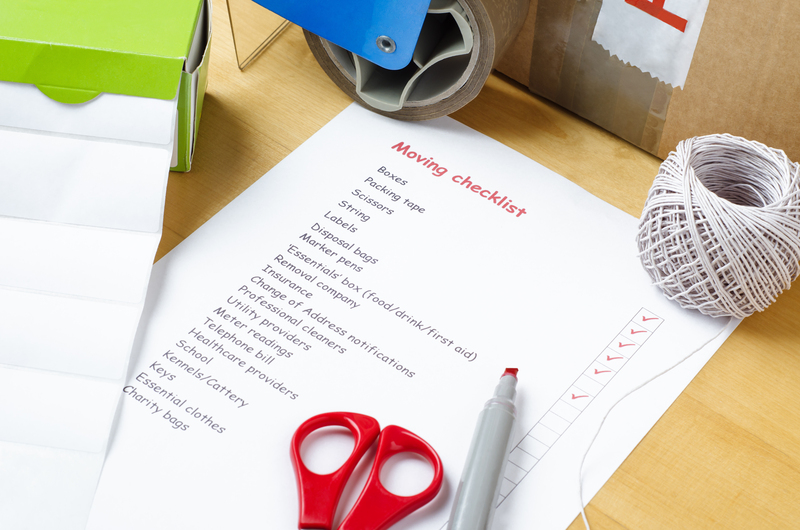Essential Tips for a Hassle-Free Piano Move with Experts
Posted on 07/06/2025
Essential Tips for a Hassle-Free Piano Move with Experts
Moving a piano isn't just about muscle strength; it's an intricate task requiring precision, planning, and proficiency. Whether you own a grand piano, upright piano, or a baby grand, relocating this cherished instrument demands more than typical moving know-how. Even the slightest mishandling can lead to damage that affects its sound, structure, or appearance.
To ensure a stress-free and successful piano move, partnering with expert piano movers is paramount. In this comprehensive guide, we'll cover all the essential tips and insider knowledge you need for a smooth and secure piano relocation--straight from the pros!
Why Hire Professional Piano Movers?
If you're considering a DIY move, think twice! Pianos are heavy, awkwardly shaped, and incredibly delicate. Specialized moving companies with a focus on pianos have:
- Expertise: Years of experience handling various piano models and brands.
- Tools and Equipment: Piano boards, ramps, skid boards, and protective padding.
- Teamwork: Coordinated effort and the right number of movers for safety and efficiency.
- Insurance: Adequate coverage in case of accidental damages.
Choosing professional piano relocation services reduces risk, saves money in the long run, and brings peace of mind.

Essential Tips for a Hassle-Free Piano Move with Experts
1. Choose Licensed and Insured Piano Movers
Not all movers are created equal. Always verify credentials and ensure that the company is fully licensed and insured for musical instrument transportation. This safeguards your investment and guarantees accountability throughout the process.
- Ask for their registration number and proof of insurance.
- Check online reviews and testimonials for honest insights from previous clients.
2. Assess Your Piano and Moving Needs
Every piano is unique. Before booking professionals, provide them with:
- The make, model, and dimensions of your piano.
- Information about any special features or fragile parts (i.e., decorative inlays, ivory keys).
- Site details--stairs, narrow corridors, elevator access, and parking restrictions.
Detailed information helps experts plan for safe piano transport and handling.
3. Plan the Moving Route
Successful piano moving starts with a thorough walkthrough. Piano movers will:
- Identify obstacles like doorways, sharp corners, and uneven flooring.
- Measure entrances to ensure the piano fits or if disassembly is required.
- Map out the most direct and safest path from the current location to the moving truck.
Clearing the route beforehand accelerates the process and prevents damage to floors, walls, and the piano itself.
4. Secure Proper Equipment for the Move
Specialized equipment is non-negotiable for a hassle-free piano move. Experts typically utilize:
- Piano trolleys and dollies designed to handle heavy loads without damaging floors.
- Moving straps to secure the instrument during transport.
- Protective blankets and padding to shield from scratches and bumps.
- Skid boards for grand pianos that require partial disassembly.
Attempting DIY without these tools can result in injuries and costly repairs.
5. Prepare Your Piano for Moving Day
Prepping your piano ahead of time boosts efficiency and protects its components:
- Clean the exterior with a soft cloth to remove dust and dirt.
- Lock or secure the keyboard lid to avoid accidental opening.
- Remove loose parts or accessories (music stands, caster cups, pedals if they detach easily).
- Make note of any existing damages for future reference.
*Never attempt internal repairs or string removal unless instructed by professionals.*
6. Communication is Key
Maintain open communication with your moving team:
- Confirm arrival times and routes.
- Share special requirements, such as moving a piano during specific hours in an apartment complex.
- Discuss your expectations and any concerns you have.
A well-informed team delivers better results and a smoother experience.
7. Climate Control Considerations
Pianos are sensitive to humidity and temperature changes. If moving across climates or during extreme weather:
- Ask about climate-controlled trucks for safe piano transportation.
- Plan the move for mild weather, or ensure direct transit from door to truck.
- Allow your piano to acclimate to the new space for a few days before tuning or playing.
Protect your investment by minimizing exposure to harsh conditions!
8. Insurance and Liability
Accidents can happen--no matter how careful you and the movers are. Discuss coverage options with the moving company before signing contracts:
- Comprehensive moving insurance for valuable instruments.
- Liability policies in case of injuries or structural damages on your property.
Peace of mind is worth every penny when protecting a cherished piano.
9. Post-Move Care and Tuning
Once your piano is safely relocated:
- Let it settle for at least 2-3 days to acclimate to the environment.
- Check for visible damages or changes in how it plays.
- Schedule a professional piano tuning--moving often disrupts string tension and pitch.
- Reinstall any accessories and polish the piano for a fresh look.
Regular maintenance following a move ensures decades of beautiful sound and performance.
Top Questions for Your Piano Moving Company
Before choosing a piano moving expert, ask these important questions:
- How much experience do you have moving pianos?
- What types of pianos have you relocated?
- Do you have a portfolio or references?
- What is your process for packing and transporting my piano?
- Are there any additional fees for stairs, long distances, or special handling?
- What insurance options do you offer?
- What is the estimated timeline for the move?
Being informed empowers you to make the best decision for your valuable instrument.
The Benefits of a Professional Piano Move
Here's why enlisting experts for your piano relocation is the best choice:
- Safety for You and Your Piano: Prevents injuries and eliminates risk of harm to delicate parts.
- Efficiency: Experienced movers work quickly without cutting corners.
- Proper Handling and Packing: Specialized knowledge minimizes vibration, shock, and climate-induced damage.
- Cost Savings: Avoids expensive repairs caused by amateur mistakes.
- Convenience: Reduces stress and lets you focus on your move, not logistics.
Piano Moving Mistakes to Avoid
Don't fall for these common pitfalls:
- Underestimating the weight and size of your piano--some can weigh over 1,000 pounds!
- Skipping the planning process--failure to assess the moving path leads to last-minute headaches.
- Attempting to move a piano yourself without experience and proper equipment.
- Forgoing insurance--financial risk isn't worth the savings.
Trust in reputable piano moving specialists who understand the nuances of safe piano relocation.

How to Find the Right Piano Moving Experts Near You
To locate reliable piano movers:
- Start with recommendations from music teachers, piano retailers, and friends.
- Research companies specializing in piano logistics, not just general movers.
- Verify credentials and insurance before signing any agreement.
- Compare quotes--but don't choose based on price alone. Quality of service matters!
- Ask for an in-person assessment if possible. This allows for a more accurate estimate and route planning.
Conclusion: Trust the Experts for a Hassle-Free Piano Move
Moving a piano is a unique challenge--it's a blend of art and science, requiring technical skill, teamwork, and respect for the instrument. By following these essential tips for a seamless piano move with experts, you're investing in the longevity, sound, and beauty of your beloved piano.
From preparation and equipment to communication and post-move care, professional piano movers provide the peace of mind you need for a successful relocation. Don't compromise on expertise--trust the professionals for a smooth, safe, and truly hassle-free piano move every time!
Ready to make your move? Contact a trusted piano moving specialist today and enjoy the harmony of a worry-free experience!
Latest Posts
Achieve Stress-Free Moving with Strategic Packing
Perfect Your Home's Cleanliness Before the Move
Protect Your Investment: Storing a Freezer Correctly



